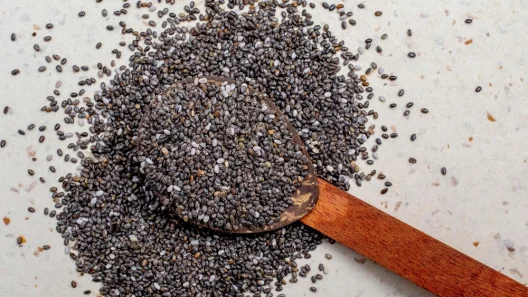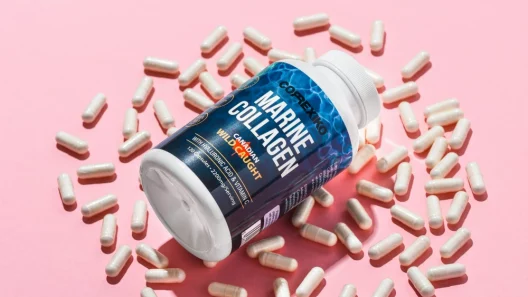Brain health has emerged as a central focus in the wellness landscape of 2025, with growing recognition that cognitive function is not just about preventing decline but optimizing performance throughout life. As neuroscience advances, we’re understanding more about the remarkable plasticity of the human brain, its ability to adapt, grow, and heal given the right support . This knowledge comes at a crucial time when factors like chronic stress, poor sleep, sedentary lifestyles, and nutritional gaps are challenging our cognitive resilience . At MyGreenRemedy, we believe in a science-backed approach to brain health that combines strategic supplementation with lifestyle foundations. This comprehensive guide examines the most effective natural supplements for cognitive support, evaluating their mechanisms, evidence base, and practical application for those seeking to enhance focus, memory, and overall brain function through natural means.
How Supplements Support Cognitive Function
The Complexities of Brain Health
Your brain is arguably the most complex organ in your body, requiring substantial resources to maintain its intricate operations. Despite representing only about 2% of body weight, the brain consumes approximately 20% of the body’s oxygen and energy . This high metabolic rate generates significant oxidative stress, making the brain particularly vulnerable to free radical damage . Additionally, the brain depends on a delicate balance of neurotransmitters (chemical messengers), efficient blood flow for oxygen and nutrient delivery, and robust cellular membranes for proper communication between neurons .
Mechanisms of Cognitive Support
Natural supplements can support brain health through several key mechanisms:
- Enhancing cerebral blood flow: Improving delivery of oxygen and nutrients to brain cells .
- Supporting neurotransmitter production: Providing precursors for key brain chemicals involved in mood, focus, and memory .
- Reducing inflammation: Chronic neuroinflammation is increasingly linked to cognitive decline .
- Providing antioxidant protection: Neutralizing free radicals that damage brain cells .
- Supporting brain cell structure: Providing building blocks for neuronal membranes .
- Promoting neuroplasticity: Enhancing the brain’s ability to form new connections .
It’s crucial to understand that supplements complement rather than replace foundational lifestyle factors like quality sleep, regular exercise, stress management, and a nutrient-dense diet. The most effective approach combines strategic supplementation with these healthy habits.
Want to dive in deeper into the world of Supplements? Our Complete Guide to Dietary Supplements is where you should start.
Best Natural Supplements for Brain Health
Omega-3 Fatty Acids (Fish Oil, Algal Oil)
Omega-3 fatty acids, particularly EPA (eicosapentaenoic acid) and DHA (docosahexaenoic acid), are fundamental structural components of brain cell membranes, making up approximately 30% of the brain’s dry weight . DHA is especially concentrated in synaptic membranes where it supports fluidity, receptor function, and communication between neurons . Research indicates that omega-3s support multiple aspects of cognitive function including memory, processing speed, and executive function, while also helping to regulate mood and reduce brain inflammation .
Evidence base: A 2024 meta-analysis of 38 randomized controlled trials concluded that omega-3 supplementation, particularly with higher EPA/DHA ratios, significantly improved cognitive performance in adults with mild cognitive complaints . Another study found that higher blood levels of omega-3s were associated with increased hippocampal volume (a key memory center) and better abstract reasoning .
Dosage recommendations: Most studies use 1,000-2,000 mg combined EPA/DHA daily. For those following plant-based diets, algal oil provides a sustainable source of DHA and EPA without concerns about ocean contaminants. Quality matters significantly, look for products that have been tested for oxidative damage and heavy metal contamination.
Ginkgo Biloba
Ginkgo biloba is one of the most extensively researched herbal supplements for brain health, with a use history spanning thousands of years in Traditional Chinese Medicine. Its cognitive benefits are attributed to multiple compounds, particularly flavonoids and terpenoids, which act as antioxidants and improve cerebral blood flow by dilating blood vessels and reducing blood viscosity . Ginkgo appears to enhance microcirculation in the brain, improving oxygen and glucose utilization in neurons .
Evidence base: A comprehensive review published in the Journal of Alzheimer’s Disease analyzed 29 randomized controlled trials and found that ginkgo extract (EGb 761) significantly improved cognitive function, activities of daily living, and overall clinical global impression in patients with mild cognitive impairment and dementia . However, results in healthy young adults have been more mixed, suggesting ginkgo may be more effective for age-related cognitive support.
Dosage recommendations: Standardized extracts containing 24% flavonoid glycosides and 6% terpene lactones at doses of 120-240 mg daily have shown the most consistent benefits. Effects typically build over 4-12 weeks of consistent use.
Bacopa Monnieri
Bacopa monnieri is a staple herb in Ayurvedic medicine traditionally used to enhance memory, learning, and concentration. Its active compounds, called bacosides, appear to support cognitive function through multiple mechanisms: enhancing communication between neurons, promoting nerve regeneration, reducing inflammation and oxidative stress in the brain, and modulating neurotransmitters involved in learning and memory .
Evidence base: A 2023 meta-analysis of 12 randomized controlled trials concluded that bacopa supplementation significantly improved memory acquisition, retention, and recall in healthy adults, with effects becoming more pronounced after 8-12 weeks of use . Another study found that 300 mg daily of bacopa extract improved memory recall, anxiety levels, and heart rate variability in medical students during exam periods .
Dosage recommendations: Most studies use standardized extracts (typically containing 50-55% bacosides) at doses of 300-450 mg daily. Bacopa is fat-soluble, so taking it with a meal containing healthy fats may enhance absorption. Unlike some cognitive enhancers that provide immediate effects, bacopa’s benefits typically develop gradually over several weeks to months.
Lion’s Mane Mushroom
Lion’s mane (Hericium erinaceus) is a medicinal mushroom gaining significant attention for its potential neuroprotective and neuroregenerative properties. Its bioactive compounds, particularly hericenonesand erinacines, appear to stimulate the production of nerve growth factor (NGF), a protein crucial for the growth, maintenance, and survival of neurons . Research suggests lion’s mane may support memory, focus, and mood while potentially helping to protect against age-related cognitive decline .
Evidence base: A 2024 randomized controlled trial published in the Journal of Clinical Biochemistry and Nutrition found that 12 weeks of lion’s mane supplementation (1,000 mg daily) significantly improved cognitive function scores in adults with mild cognitive impairment compared to placebo . Earlier human studies have shown benefits for concentration, memory recall, and mental clarity, with some evidence suggesting it may help reduce mild anxiety and depression symptoms .
Dosage recommendations: Most studies use 500-1,500 mg daily of standardized extract. Both alcohol extracts (which capture the mushroom’s immune-supporting polysaccharides) and dual-extraction products (which also capture the brain-supporting terpenoids) may offer benefits. As with many natural supplements, consistency is key with lion’s mane, with benefits typically emerging after 4-8 weeks of regular use.
Rhodiola Rosea & Adaptogens
Rhodiola rosea is classified as an adaptogen, a substance that helps the body adapt to physical, chemical, and environmental stress. For brain health, rhodiola appears particularly effective at reducing mental fatigue and enhancing resilience to stress, which can significantly impact cognitive performance . Its active compounds, rosavins and salidroside, help regulate the stress response system (HPA axis) and influence neurotransmitters like serotonin, dopamine, and norepinephrine that affect mood, motivation, and focus .
Evidence base: A comprehensive review in Phytomedicine analyzed 11 human studies and found that rhodiola supplementation consistently reduced feelings of mental fatigue while improving attention, cognitive processing, and mood in situations of stress and fatigue . Benefits appear most pronounced for those experiencing situational stress or fatigue rather than as a general cognitive enhancer for already well-functioning individuals.
Dosage recommendations: Standardized extracts (typically 3% rosavins and 1% salidroside) at doses of 200-400 mg daily are commonly used. Rhodiola is generally taken in the morning or early afternoon as it may interfere with sleep if taken too late in the day. Cycling (e.g., 4-6 weeks on, 1-2 weeks off) may help maintain effectiveness.
Curcumin (Turmeric Extract)
Curcumin, the primary bioactive compound in turmeric, has gained attention for brain health due to its potent anti-inflammatory and antioxidant properties. Chronic inflammation and oxidative stress are increasingly recognized as contributors to cognitive decline and various neurological conditions . Curcumin appears to support brain health through multiple pathways: reducing neuroinflammation, clearing amyloid plaques (associated with Alzheimer’s disease), enhancing brain-derived neurotrophic factor (BDNF) levels, and improving cerebral blood flow .
Evidence base: A 2023 systematic review of 15 randomized controlled trials found that curcumin supplementation significantly improved memory and attention in older adults with age-related memory concerns . However, results in healthy young adults have been less consistent, suggesting curcumin may be more effective for addressing inflammation-related cognitive issues rather than as a general cognitive enhancer.
Dosage recommendations: Standard curcumin has poor bioavailability, so enhanced formulations (often combined with piperine from black pepper, phospholipids, or nanoparticles) at doses of 500-1,000 mg daily are recommended. Consistent daily use for at least 4-8 weeks appears necessary to see cognitive benefits.
Table: Evidence-Based Brain Health Supplements at a Glance
| Supplement | Key Mechanisms | Evidence Strength | Typical Dose | Time to Notice Effects |
| Omega-3s (EPA/DHA) | Supports neuronal structure, reduces inflammation, enhances blood flow | Strong | 1,000-2,000 mg daily | 8-12 weeks |
| Bacopa Monnieri | Enhances synaptic communication, reduces oxidative stress, modulates neurotransmitters | Moderate to Strong | 300-450 mg daily (standardized extract) | 8-12 weeks |
| Lion’s Mane Mushroom | Stimulates nerve growth factor, supports neuronal health, neuroprotective | Moderate | 500-1,500 mg daily (extract) | 4-8 weeks |
| Ginkgo Biloba | Improves cerebral blood flow, antioxidant protection, modulates neurotransmitters | Moderate (stronger for age-related concerns) | 120-240 mg daily (standardized extract) | 4-12 weeks |
| Rhodiola Rosea | Adaptogenic stress support, reduces mental fatigue, influences neurotransmitters | Moderate | 200-400 mg daily (standardized extract) | Immediately to 2 weeks for stress adaptation |
| Curcumin | Reduces neuroinflammation, antioxidant, enhances BDNF, may clear amyloid plaques | Moderate (stronger for inflammation-related issues) | 500-1,000 mg daily (enhanced bioavailability) | 4-8 weeks |
Emerging Trends in 2025
Nootropic Stacks and Blends
The concept of nootropic stacking – combining multiple cognitive-enhancing compounds for synergistic effects, continues to gain popularity in 2025. Research is increasingly exploring how traditional herbs might work synergistically with modern compounds like l-theanine (from green tea), choline sources (like alpha-GPC), and amino acids (like acetyl-l-carnitine) . These combinations aim to target multiple cognitive pathways simultaneously, though more research is needed to identify optimal formulations.
Probiotics for the Gut-Brain Axis
The gut-brain connection represents one of the most exciting frontiers in neuroscience. Research continues to reveal how the gut microbiome influences brain function, mood, and cognition through the gut-brain axis – a bidirectional communication system involving neural, endocrine, and immune pathways . Specific probiotic strains are being studied for their potential to produce neurotransmitters, reduce inflammation, and influence brain function . This emerging field, sometimes called “psychobiotics,” suggests that supporting gut health may be an important component of cognitive support.
Personalized Cognitive Supplements
Advances in genetic testing and microbiome analysis are paving the way for more personalized approaches to cognitive supplementation. Companies are beginning to offer formulations tailored to individual genetic profiles (such as COMT and MTHFR variants that affect neurotransmitter metabolism) and microbiome compositions . While still in its early stages, this personalized approach represents a promising direction for maximizing the effectiveness of cognitive support strategies.
How to Choose Safe & Effective Brain Supplements
Quality Considerations
The supplement industry varies widely in terms of quality and purity. To ensure you’re getting an effective product:
- Look for standardized extracts that guarantee consistent levels of active compounds
- Choose brands that undergo third-party testing (USP, NSF, ConsumerLab) for purity and potency
- Prefer companies that practice transparent sourcing and provide information about extraction methods
- Check for expiration dates as some compounds degrade over time
Understanding Dosage and Timing
Effective dosing often differs from what’s listed on supplement labels due to marketing considerations. Scientific studies typically use specific doses that may be higher than what some commercial products provide. Additionally, timing can influence effectiveness, some supplements work best when taken consistently over time (like bacopa), while others provide more immediate effects (like rhodiola for situational stress).
Safety and Interactions
While generally safe when used appropriately, cognitive supplements can cause side effects or interact with medications:
- Ginkgo biloba may thin blood and interact with anticoagulant medications
- Rhodiola might interact with antidepressant medications
- Bacopa may enhance the effects of sedative medications
- Some supplements are not recommended during pregnancy or breastfeeding
Always consult with a healthcare provider before starting new supplements, especially if you have medical conditions or take prescription medications.
Lifestyle & Cognitive Support
The Foundation of Brain Health
Supplements work best when combined with lifestyle practices that support cognitive function:
- Quality sleep: During deep sleep, the brain clears metabolic waste and consolidates memories
- Regular physical activity: Exercise increases blood flow to the brain and stimulates BDNF production
- Mental stimulation: Challenging your brain with new learning promotes neuroplasticity
- Stress management: Chronic stress can damage brain cells, particularly in memory centers
- Social connection: Meaningful relationships support cognitive resilience
Dietary Patterns for Brain Health
Certain dietary patterns appear particularly supportive of cognitive function:
- Mediterranean diet: Rich in antioxidants, healthy fats, and anti-inflammatory compounds
- MIND diet: Specifically designed for brain health, emphasizing berries, leafy greens, nuts, and fish
- Intermittent fasting: May support brain health by enhancing autophagy (cellular cleanup) and BDNF production
These dietary approaches provide the foundational nutrients that work synergistically with targeted supplements.
For those interested in comprehensive wellness approaches, our article on Top Supplements for Immune Support in 2025 explores how immune and brain health are interconnected.
FAQs
Do supplements really improve memory?
The answer depends on the supplement, dosage, and individual circumstances. Evidence-based supplements like bacopa, omega-3s, and ginkgo have shown statistically significant improvements in memory measures in clinical trials, particularly for those with age-related memory concerns or high cognitive demands . However, effects are typically modest rather than transformative, and individual responses vary based on genetics, baseline nutritional status, and lifestyle factors .
How long before results are noticeable?
The timeframe for noticeable effects varies significantly between supplements. Some adaptogens like rhodiola may provide relatively quick benefits for mental fatigue and stress resilience (within days to weeks), while supplements that support structural brain changes like omega-3s and bacopa typically require 8-12 weeks of consistent use to demonstrate measurable effects . Managing expectations is important, natural cognitive supplements generally work gradually rather than providing immediate, dramatic results.
Can brain supplements prevent dementia?
While some supplements show promise for supporting brain health and potentially reducing risk factors associated with cognitive decline, no supplement can guarantee prevention of dementia or Alzheimer’s disease . The most effective approach combines strategic supplementation with lifestyle factors known to support brain health: regular physical and mental exercise, social engagement, management of cardiovascular risk factors, and a brain-healthy diet . Supplements should be viewed as one component of a comprehensive brain health strategy rather than a standalone solution.
Are they safe for long-term use?
Most of the supplements discussed have good safety profiles when used at appropriate doses, with some traditional herbs like bacopa and ginkgo having centuries of traditional use . However, long-term safety data for many supplements is limited, and some may interact with medications or have contraindications for certain health conditions . Periodic breaks (e.g., 4-6 weeks on, 1-2 weeks off) may be prudent for some supplements, though others like omega-3s are typically recommended for continuous use. Regular monitoring and professional guidance can help ensure safe long-term use.
Conclusion
Strategic supplementation can be a valuable component of a comprehensive approach to cognitive health, particularly when based on individual needs and scientific evidence. The most well-researched natural supplements for brain support include omega-3 fatty acids, bacopa monnieri, lion’s mane mushroom, ginkgo biloba, rhodiola rosea, and curcumin, each with specific mechanisms and appropriate applications. However, it’s important to maintain realistic expectations, these supplements typically offer modest, gradual improvements rather than dramatic transformations.
The most effective approach to cognitive health combines evidence-based supplementation with foundational lifestyle practices: quality sleep, regular physical and mental exercise, stress management, social connection, and a nutrient-dense diet . This comprehensive strategy supports brain function through multiple complementary pathways, offering the best opportunity for maintaining cognitive vitality throughout life.
For those interested in related natural health approaches, we invite you to explore our articles on Ayurvedic Herbs for Gut Health and Natural Remedies for Migraine Relief available on our website.
Remember: This article provides educational information only and should not replace personalized medical advice. Always consult with a healthcare professional before starting any new supplement regimen, especially if you have underlying health conditions or take medications.










